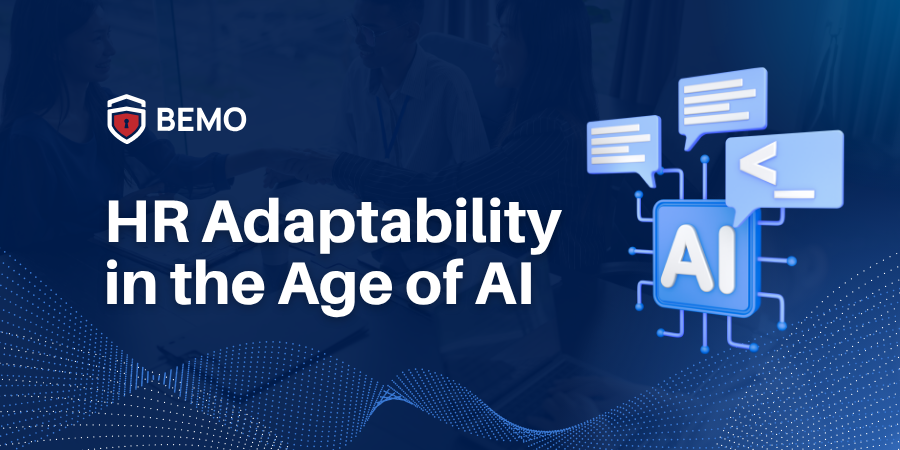
The world of work is shifting at a speed we’ve never seen before. Artificial intelligence, new business models, and evolving employee expectations are transforming how organizations operate.
For HR leaders, this moment calls for a renewed focus on adaptability, not just to change in general, but to the growing presence of AI in every part of work. Adaptability has become a core capability that shapes engagement, drives innovation, and supports long-term organizational success.
AI Adoption in HR
According to Gartner’s AI in HR report (2025), generative AI adoption in HR has increased sharply—from only 19% of HR leaders in mid-2023 to 61% by early 2025. This surge shows how quickly HR functions are experimenting with AI tools to improve efficiency and insight. But Gartner warns that adoption alone is not enough.
To capture real value, HR leaders must rethink how HR works, not just what tools it uses. That means redesigning roles, workflows, and service delivery models so that people and AI can complement each other effectively.
This is where adaptability comes in. HR teams, and the wider workforce, must learn to adapt to AI systems, experiment with new processes, and continuously build skills as technology evolves. Gartner highlights that preparing employees for AI requires more than technical training. It means helping them understand how their roles will change, developing confidence to use new tools, and ensuring that AI integration enhances rather than disrupts the human side of work.
Deloitte’s 2025 Global Human Capital Trends research echoes this need for adaptability. The report shows that two-thirds of workers worldwide feel overwhelmed by the pace of change, while nearly half worry they might be left behind. At the same time, most executives believe organizations must become far more agile to stay competitive. Deloitte describes this as the ongoing challenge of balancing the stability that workers want with the agility organizations need to stay competitive.
The study points out that stability and adaptability are not opposite; they depend on each other. Workers who feel grounded and supported are better equipped to learn, take risks, and adjust to new technologies such as AI. To build that foundation,
Deloitte suggests moving away from traditional structures like fixed job descriptions and linear career paths, and instead focusing on skills-based development, cross-functional collaboration, and purpose-driven work design. These new approaches help employees feel more connected, confident, and supported as their roles continue to evolve.
For HR, this means creating environments where people can grow alongside technology. It involves upskilling employees in AI-related competencies, fostering curiosity, and encouraging experimentation without fear of failure.
HR must also model adaptability itself, redesigning processes, piloting AI responsibly, and listening closely to how technology impacts employees’ day-to-day experience.
Both Gartner and Deloitte agree on a central truth: adaptability is now at the heart of workforce resilience. AI is reshaping how work gets done, but it’s the human ability to learn, connect, and evolve that will determine whether organizations truly thrive in this new era.
At BEMO, we’ve already begun this journey by adopting Microsoft Copilot across our organization. This step is helping us continue to build our company culture around adaptability, collaboration, and continuous learning. By integrating AI into the way we work, we’re creating space for people to focus on creativity, connection, and the kind of meaningful work that drives both individual and organizational growth.
Top 10 Posts
-
Google Workspace to Office 365 Migration: A Step-by-Step Guide
-
Office 365 MFA Setup: Step-by-Step Instructions
-
How to Migrate from GoDaddy to Office 365
-
Migrate From Gmail to Office 365: 2024 Guide
-
CMMC Meaning : A Comprehensive Guide for Startups
-
How to remove Office 365 from GoDaddy (tips and tricks)
-
What is Microsoft Purview ? Your A to Z Guide to Getting Secure Fast
-
What is The CIA Triad?
-
How to Set Up Office Message Encryption (OME)
-
What are the 4 types of Microsoft Active Directory?


Leave us a comment!